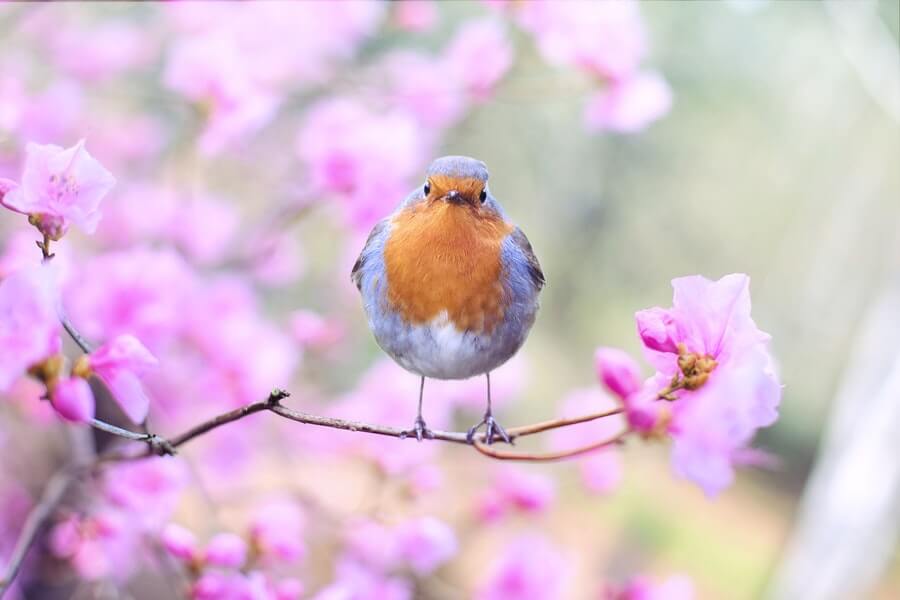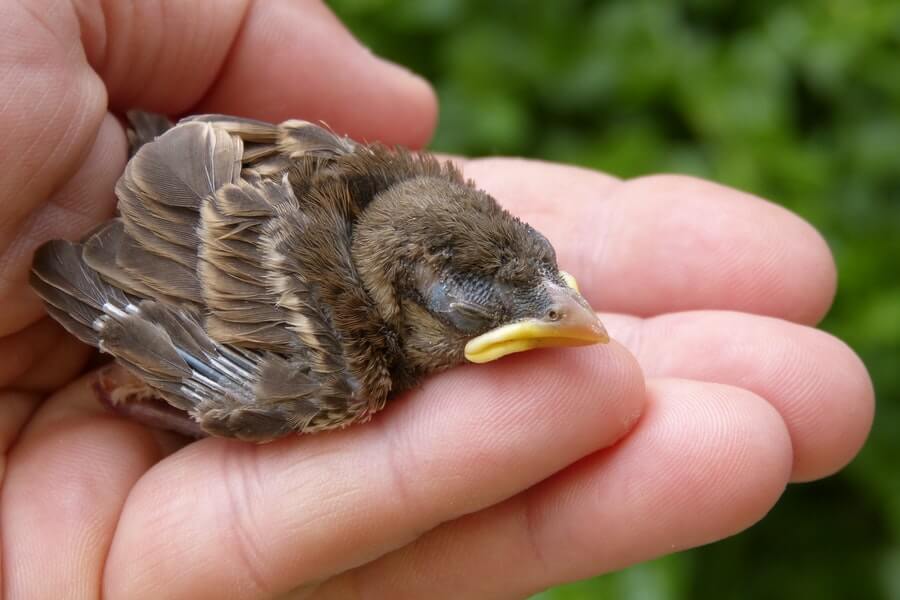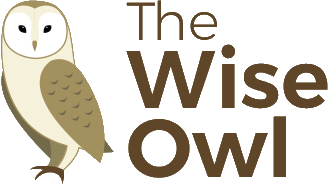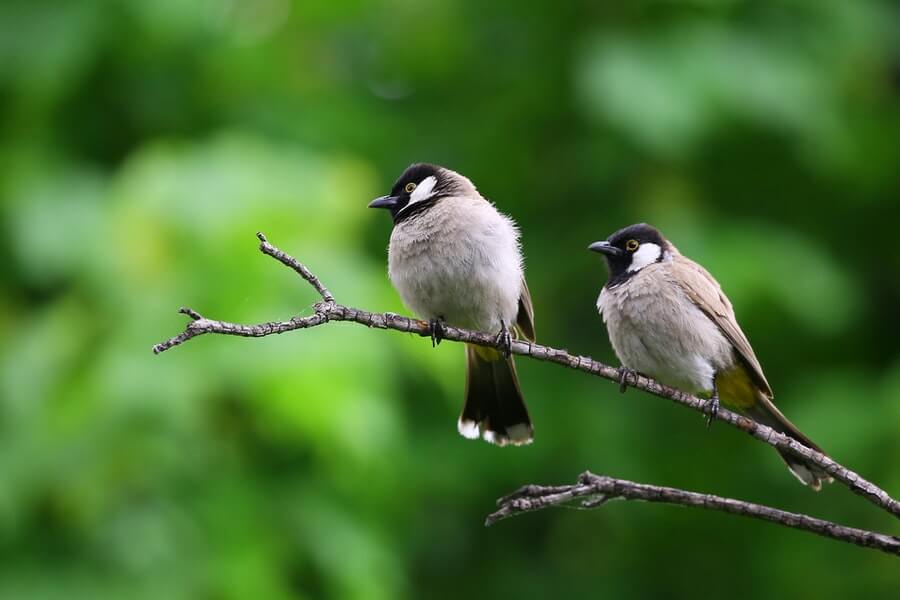Birds have always been a source of fascination to us. And for those lucky enough to live in areas populated by wild birds, you’ve probably stared into the heavens on many occasions to enjoy watching them in flight. In the United Kingdom, bird law protects all wild bird species, especially protected birds.
However, while most people are aware of the laws around protected birds, many may not know the finer points of the regulations. Not only can this result in hefty fines and the possibility of being prosecuted, failing to follow the law can cause a sharp decline in wild bird populations.
If you live in areas populated by protected birds, play it safe and make sure you don’t do anything to harm these magnificent creatures. We’ve explained the law on birds below in an easy-to-understand capacity so that you can stay clued up and become an advocate for our feathered friends.
What You Are Not Allowed To Do
When humans and animals live close together, you can expect positive and negative interactions. While it is understandable that you need to maintain your home and your property, or perhaps even carry out some construction, it is crucial to understand what you must avoid when it comes to protected birds.
According to bird law, some of the things you are not allowed to intentionally do include:
- Killing, injuring or capturing wild birds.
- Damaging, destroying or taking wild birds’ nests, even during the early stages of nest building.
- Taking or damaging wild birds’ eggs.
- Taking possession of wild birds, whether dead or alive. You must not transport them or control them in any way.
- Selling wild birds or displaying them for sale.
It is essential to understand that all wild bird species, their eggs, and nests are protected by law. You must also ensure that any activities you undertake around your home will not be harmful to wild birds in any way.
While the law does understand you will have tasks to do around your property, you need to take measures to avoid doing the work during bird breeding season and complete your tasks using methods that will not harm them in any way.
Protected Bird Laws
It’s essential that you remember the law protects all wild birds. However, the laws are in place to protect birds and ensure their populations aren’t jeopardized. There are a few different acts and laws which protect birds, and it helps to know which ones are specific to your region.
The Wildlife and Countryside Act 1981
The Wildlife and Countryside Act 1981 is an Act of Parliament in the UK that the government implemented to conserve wild birds. The act is in place to protect native bird species, especially those in threat of extinction, as well as control the release of non-native species[ii].
Penalties can be imposed for any offence under the Wildlife and Countryside Act 1981[iii] with monetary fines in unlimited values, depending on the offence committed and up to six months imprisonment. In some cases, you can expect fines and imprisonment. This applies to harming or killing birds and causing damage to their nests and eggs.
Countryside and Rights of Way Act 2000
This Act ensures The Right to Roam, giving people the right to walk freely in certain areas, particularly uncultivated land. It also ensures Public Rights of Way, which allows public footpaths and trails to be made. However, it also involves Nature Conservation which protects certain birds and animals while also protecting their habitat[iv].
Natural Environment and Rural Communities Act 2006
This act discusses the protection of birds and their nests. Not only does this include a variety of native wild birds, but also their nests and eggs. It is also illegal to remove an old nest as some wild birds will return and reuse their nests[v].
If you are not sure about the specifics of bird law in your region, contact your local wildlife and nature conservation agency for more details.
Schedule One
Schedule One serves as additional protection for native wild birds in the UK, particularly during nesting season. This protection extends to the nests, eggs and dependent young birds. It is important to note that the Isle of Man has more protected birds than in other parts of the UK. For some of these species, there are even more protections, and it is an offence to intentionally or through reckless actions, disturb the birds that fall under the protection of Schedule One[vi][vii].
As an example of reckless activity, you may be knowingly working too close to the nest of a Schedule One species of bird and disturbing them while they are building their nest, actually nesting, or the nest has young birds in it. It is an offence to disturb the nest under any circumstances.
Fortunately, most people will rarely be in the vicinity of a Schedule One species of birds as many will not nest in residential areas.
CITES
CITES, which stands for The Convention on International Trade in Endangered Species of Wild Fauna and Flora, is an international agreement between governments. Its purpose is to eliminate the international trade of wild animals and plants species. In particular, it aims to eradicate the trade that threatens the survival of these species[viii].
The governments implemented this treaty to protect close to 40,000 species of plants and animals, including several species of birds. You can conduct your own search[ix] to find our which species the CITES treaty covers.
Gardening Tasks That Can Harm Protected Birds

If you’ve ever lived in the countryside, especially on a larger property, you know there is always a considerable amount of work to be done. There are often buildings that need to be constructed or repaired, fields that need to be ploughed ready for planting, trees you need to cut down, and, in some cases, you need to protect the seeds you have planted for crops. However, some of these activities can harm wild birds, so you need to avoid the following:
- Cutting down or trimming trees, hedges, bushes, shrubs as well as rough vegetation. This includes not disturbing nesting birds just so you can cut down trees.
- Renovating, converting, demolishing or constructing a building.
- Creating disturbances such as excessive noise, lighting or vibrations due to excavation, farming with machinery, etc.
- Shooting birds or removing nests to prevent problems such as birds eating crop seeds, fruit from trees, etc.
Read More: The Biggest Threats to Birds
How To Help Protected Birds

On the other hand, there are things you can do to conserve native bird species while living in their territory. These measures include:
- Avoid certain tasks and activities during the breeding season.
- Check with your local wildlife conservation authority to see which birds may be prominent in your area and understand what you can and can’t do at certain times of the year.
- Place burlap sacks or netting over your orchard and crop beds to prevent birds from devouring them.
- Set up birdhouses and feeders around your property and keep them well replenished with food, such as wild bird peanuts.
The only time you should handle a wild bird is if you find one injured. In this case, you can gently pick up the bird and nurse it back to health. However, unless you have the knowledge and expertise to care for injured wild birds, you should contact your local veterinarian or wildlife authority. They will collect the bird for expert treatment.
Reporting Wild Bird Crimes

Everyone should have an active role in their community, and this includes protecting our wild birds. If you are aware of anybody committing crimes against the wild bird population in your area, you have a civic duty to report the crime.
Don’t hesitate to get in touch with one of the following organizations [xi]:
- 999 – This is the police emergency number and you should call this number if the crime is in progress.
- 101 – This number is to report crimes that you are aware of but are not urgent. Ask for a reference number when you report the crime.
- 0800 321600 – Wildlife Incident Investigation Scheme (WIIS)
- 0300 1234 999 – RSPCA
- 03000 999 999 – SSPCA
- 02830 251000 – USPCA
You can call any of these numbers if you suspect someone is setting poison, baits or traps to harm the bird population, or other animals.
The Importance of Looking After Protected Birds
We all need to play our part to keep our precious wild bird populations thriving – from garden birds to owls, all birds are equally important. Birds are not just beautiful creatures, as they also play an important role in the ecosystem. Not only do they get rid of a multitude of pests and rodents, but they also help the ecosystem by carrying seeds while they are flying and dropping them on fertile ground. We need to live in harmony with nature for the sake of our planet today and for future generations. While you may not be able to save bird species all over the world, at least you can protect the ones in your area.
Sources
[i] https://www.gov.uk/guidance/wild-birds-protection-surveys-and-licences
[ii] https://www.legislation.gov.uk/ukpga/1981/69/contents
[iii] https://www.rspb.org.uk/birds-and-wildlife/advice/wildlife-and-the-law/wildlife-and-countryside-act/#:~:text=Fines,six%20months%20imprisonment%20or%20both.
[iv] https://www.legislation.gov.uk/ukpga/2000/37/pdfs/ukpga_20000037_en.pdf
[v] https://www.legislation.gov.uk/ukpga/2006/16/pdfs/ukpga_20060016_en.pdf
[vi] https://waronwildlife.co.uk/2020/03/02/nesting-birds-and-the-law/
[vii] https://www.bto.org/our-science/projects/ringing/taking-part/protected-birds/s1-list
[viii] https://cites.org/eng/disc/species.php
[ix] https://www.speciesplus.net/
[x] https://www.gov.uk/guidance/wild-birds-protection-surveys-and-licences
[xi] https://www.rspb.org.uk/birds-and-wildlife/advice/how-to-report-crimes/
Gemma Sharp is the resident writer for Love Garden Birds, a supplier of premium bird food and accessories. She has had a genuine love for our feathered friends from a young age, and has dedicated a lot of her time to learning all there is to know about them. If you’re struggling to pick the right bird feed for your garden, need help identifying a type of wild bird, or can’t decide where to put a nesting box, Gemma is the person to go to! She is passionate about sharing her years of learnt knowledge with the public. In her free time, she can be found feeding birds at home with her three young boys.



